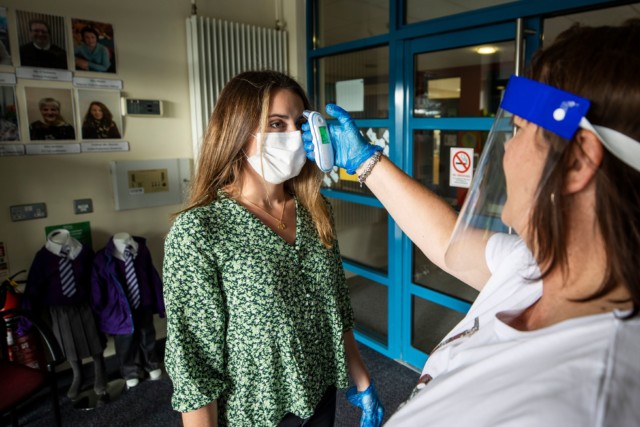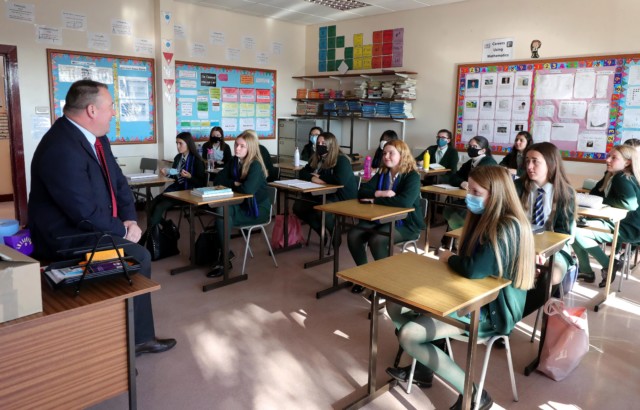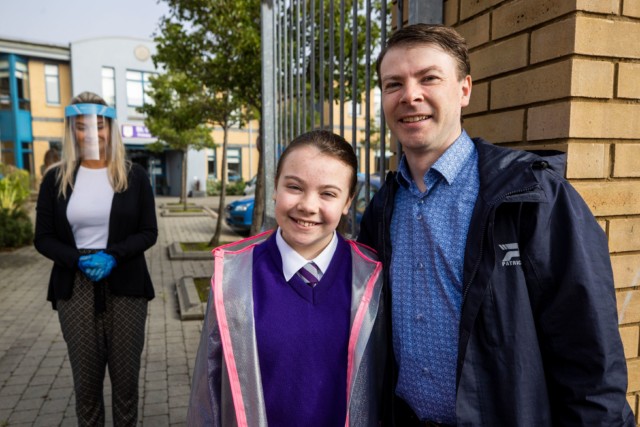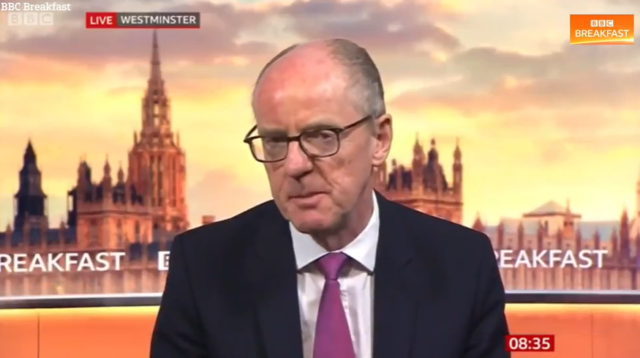HEADTEACHERS can fine parents who keep their kids off school from September – but it’s a last resort – the schools minister said today.
Nick Gibb stressed that all children should be back in their classrooms from next week to give kids the best chances in life, and repair the damage months of lockdown has done to their education.

The PM is launching a huge blitz to try and reassure parents it’s safe for them to return ahead of English schools going back next week.
Kids in Northern Ireland are returning to classrooms this morning – they won’t have to wear masks unless the school insists on it.
And today Mr Gibb insisted the measures schools were taking to minimise the risk of the transmission of the virus are “very effective”.
Asked about fines for parents who don’t send their kids in, he told BBC Radio 4’s Today programme: “Well, look, fines for non-attendance have always been a last resort for headteachers and schools. What matters is that young people are attending school.
“We live in a country where education is compulsory and I think parents can be reassured that the measures that schools are taking to make sure that we minimise the risk of the transmission of the virus are very effective.”
Ministers have said fines will return for parents who decide not to send their kids back into full-time education.
Before the pandemic fines were £60 if paid within 21 days, and £120 after that, but during the health crisis they were effectively suspended.
But it will be up to individual heads to decide if they want to use them.
Parents will concerns about coronavirus and schools should talk to their kids’ teachers and leaders to try and allay their concerns.
He added: “If they’ve (parents) got extra concerns, that is a matter between the headteacher and the family to make sure that their concerns are taken into account.
“But it is important – it’s a moral imperative – that young people are back in school.”
Today Boris Johnson released a video clip making the argument for the safe opening of all schools next week.
He said the risk of kids catching the virus is “very, very, very small” and the chances of them being very ill are even smaller still.
In a video posted on Twitter, the Prime Minister said: “It’s absolutely vital that pupils get back into school in September.
“It’s vital for their education, it’s vital for their welfare, it’s vital for their physical, and indeed, their mental wellbeing. So let’s make sure that all kids, all pupils, get back to school at the beginning of September.”
He admitted parents are “still a bit worried” but that “schools are safe” as teachers have done all they can to make them secure.


Masks on the way into school, extra handwashing, sanitser and other measures are being put into place to help the smooth return.
Children will be in classroom bubbles as much as possible and will stay 2m away from their teachers.
He stressed: “Now is the time, as we’ve long said, to get pupils back into school, give them the chances they need to build the necessary bedrock for their academic futures.
“They need to be back in school and they need to be back in school for their health and their wellbeing as well.”
At the weekend the four chief medical officers across the UK issued a joint statement stressing that kids should be back in classrooms.
They gave it the green light because absence from the classroom fuels inequality.
Evidence shows there is an “exceptionally small risk” of child deaths from Covid-19.
The fatality rate for those aged five to 14 is lower than most seasonal flu infections.
Professor Whitty said: “The balance of risk is very strongly in favour of children going to school because many more are likely to be harmed by not going than harmed by going even during this pandemic.”
The statement reveals most pupils who get coronavirus have mild or no symptoms.
It states: “Few if any will come to long-term harm due to solely attending school.
“This has to be set against a certainty of long-term harm from not attending school.”








